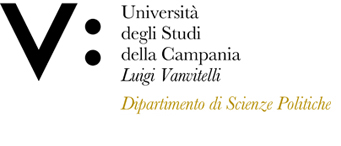Domenico AMIRANTE
Insegnamento di ENVIRONMENTAL CONSTITUTIONALISM AND CLIMATE CHANGE: RULES AND POLICIES
Corso di laurea magistrale in RELAZIONI E ORGANIZZAZIONI INTERNAZIONALI
SSD: IUS/21
CFU: 8,00
ORE PER UNITÀ DIDATTICA: 48,00
Periodo di Erogazione: Secondo Semestre
Italiano
| Lingua di insegnamento | INGLESE |
| Contenuti | L’insegnamento si propone di ripercorrere, in un’ottica comparatistica, i processi di costituzionalizzazione della materia ambientale a partire dall’analisi del contesto culturale in cui essi abbiano preso le mosse. In primo luogo, ci si concentrerà sul concetto di cultura giuridica, utile ad indagare a fondo sul legame tra cultura e diritto in tema di ambiente. Si prenderà altresì in esame la nozione di tradizione giuridica, come l’insieme di informazioni che congiungono il passato al momento presente (Glenn), nonché quale sistema di soluzioni di diritto che possano essere trasmesse da una generazione a quella successiva. |
| Testi di riferimento | D. Amirante e S. Bagni (eds), Environmental Constitutionalism in the Anthropocene, London-New York, Routledge, 2022; |
| Obiettivi formativi | 1) Conoscenza e capacità di comprensione. Lo studente dovrà acquisire una conoscenza sufficiente degli argomenti e dei temi indicati nel programma oggetto di studio, con particolare riguardo alle questioni inerenti alle dinamiche che informano il fenomeno della pluralità delle culture e tradizioni giuridiche, e per quanto riguarda la disciplina giuridica relativa a contrasto e d adattamento ai cambiamenti climatici. |
| Prerequisiti | È auspicabile che lo studente sia dotato delle conoscenze culturali di base nonché di un elevato interesse ed una particolare attitudine allo studio della materia pubblicistica. |
| Metodologie didattiche | Didattica frontale, studio di casi pratici normativi e giurisprudenziali, lezioni seminariali per complessive 48 ore. |
| Metodi di valutazione | La valutazione del candidato avviene mediante colloquio orale con punteggio in trentesimi. Per il superamento con sufficienza (18/30) dell’esame è richiesto il soddisfacimento dei requisiti di cui alla sezione “Obiettivi formativi”, ossia l’aver acquisito conoscenza e capacità di comprensione (knowledge and understanding), al fine di applicare le conoscenze relative agli istituti giuridici e agli orientamenti giurisprudenziali oggetto di studio. |
| Altre informazioni | Nel corso delle lezioni frontali e seminariali il docente potrà avvalersi di slides e di altro materiale multimediale e/o audiovisivo a supporto della didattica. |
| Programma del corso | In ragione del rapporto ore/CFU, il programma verte sui seguenti argomenti: |
English
| Teaching language | English |
| Contents | The course aims at illustrating, from a comparative perspective, the processes of constitutionalization of environmental law, starting with an analysis of the cultural context in which they have taken their start. First of all, the focus will be on the concept of legal culture, useful for an in-depth investigation of the connection between culture and law, with regard to the environment. It will also examine the notion of legal tradition, as the corpus of information that connects the past to the present (Glenn), as a set of solutions of law that can be transmitted from one generation to the next. |
| Textbook and course materials | D. Amirante e S. Bagni (eds), Environmental Constitutionalism in the Anthropocene, London-New York, Routledge, 2022; |
| Course objectives | 1) Knowledge and understanding. The student is expected to acquire sufficient knowledge of the topics and themes indicated in the program, regarding the issues inherent in the dynamics that inform the plurality of cultures and legal traditions, as they relate to the connection between man and the environment in the broadest sense, and to the discipline relating to the mitigation against and the adaptation to climate change. |
| Prerequisites | It is desirable that the student has the basic cultural knowledge as well as a high interest and a particular aptitude for the study of the public law. |
| Teaching methods | Lectures, study of legislative and jurisprudencial pratical cases, seminars for a total of 48 hours. |
| Evaluation methods | The evaluation of the candidate will be held through an oral interview for which the score is expressed in grades from 1 to 30. The minimum score to pass the exam is 18/30. To get a passing grade the student has to demonstrate that he/she has reached the "Training objectives", i.e. the student must demonstrate knowledge and understanding of the exam programme and he/she can apply it relating to the legal institutions of Italian public and comparative law. |
| Other information | During the lectures and seminars, the Professor can use slides and other multimedia and /or audio-visual materials as didactic support. |
| Course Syllabus | Considering the hours / CFU ratio, the program focuses on the following topics: |








